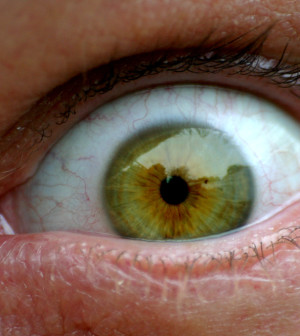- The Best Time of Day to Drink Bone Broth to Maximize Health Benefits
- 8 Ways to Increase Dopamine Naturally
- 7 Best Breads for Maintaining Stable Blood Sugar
- Gelatin vs. Collagen: Which is Best for Skin, Nails, and Joints?
- The Long-Term Effects of Daily Turmeric Supplements on Liver Health
- Could Your Grocery Store Meat Be Causing Recurring UTIs?
- Are You Making This Expensive Thermostat Error This Winter?
- Recognizing the Signs of Hypothyroidism
- 10 Strategies to Overcome Insomnia
- Could Artificial Sweeteners Be Aging the Brain Faster?
Mild Electrical Zaps to Brain Induce ‘Lucid Dreaming’ in Study


A mild electrical jolt to the brain triggered lucid dreaming in young people, allowing them to become aware that they were dreaming and even gain some control over the plot of their dream.
The research is preliminary, and there’s no home brain-zapping machine on the immediate horizon. Still, the findings don’t just shed light on dreaming, explained study author Ursula Voss, a psychology professor at J.W. Goethe-University in Frankfurt, Germany.
“It tells us something about what makes us human: higher-order consciousness,” she said. That’s because a lucid dream is a mix of unconsciousness (sleep) and consciousness (awareness of yourself): “You suddenly realize that this must be a dream, that it is not real, but it goes on nonetheless. Sometimes, if you are trained in becoming lucid, you can gain some limited control of the plot,” Voss said.
In the new study, researchers waited until 27 subjects were three minutes into REM sleep — when dreams occur — and stimulated their brains with mild doses of electricity. Researchers then almost immediately woke up the subjects and asked them to report on their dreams.
One person was dreaming about lemon cake that looked translucent, like the animation of “The Simpsons” television show. Then the person felt the sensation of falling and moved into another scene with an actor and two foreign exchange students: “Then I realized, ‘Oops, you are dreaming.’ I mean, while I was dreaming! So strange,” the volunteer said.
Should you try zapping yourself in the brain to change your dreams? Not right now. “Please don’t do it for fun,” Voss urged. “Seek out a laboratory, volunteer for a research study, but don’t do it at home.”
Robert Stickgold, director of the Center for Sleep and Cognition at Harvard Medical School, cautioned that inducing lucid dreaming might not be a good idea.
Sure, he said, it would probably be fun to put a little cap on before you go to bed and get to control your dreams. But sleep has a purpose, he said, and disrupting it may cause problems.
“Your brain is not just lazing about while you sleep,” he said. “It’s doing a lot of critical work, most of it having to do with processing memories from the day.”
This kind of processing allows your brain to do away with some kinds of information (like where you parked in the office lot today) and keep other kinds of memories, he said.
Sometimes people ask Stickgold whether they should try to get more of a certain kind of sleep, such as REM sleep.
“The answer is to leave your brain alone,” he said. “It knows what it’s doing.”
The study was published online May 11 in the journal Nature Neuroscience.
More information
For more about dreams and the workings of sleep, try the U.S. National Institute of Neurological Disorders and Stroke.
Source: HealthDay
Copyright © 2026 HealthDay. All rights reserved.










